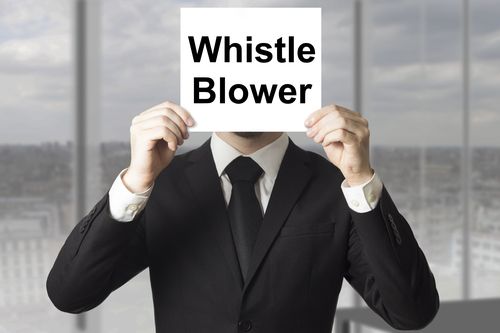Top Class Actions’s website and social media posts use affiliate links. If you make a purchase using such links, we may receive a commission, but it will not result in any additional charges to you. Please review our Affiliate Link Disclosure for more information.
A heart surgery device manufacturer has agreed to pay $8 million to settle a whistleblower lawsuit, with allegations of faulty marketing reports and physician kickbacks.
The qui tam action alleged Cardiovascular Services Inc. (CSI) provided physician kickbacks to doctors who used their products and provided positive reviews.
While using these devices, doctors would charge federal health programs to use the heart surgery device, according to the whistleblower lawsuit.
Cardiovascular Services Inc. manufacturers medical devices used in certain cardiovascular surgeries, with devices used to unblock restricted arteries using a sanding method to break apart plaque.
The Minneapolis-based company agreed to the settlement as well as to implement a five year compliance program in a North Carolina federal court.
By agreeing to these terms, Cardiovascular Services is able to end the whistleblower lawsuit, which was brought forward by a former CSI sales manager.
“Doctors are expected to provide medical advice and treatment options that benefit patients, not their own practice. The type of kickback scheme alleged in this case compromises good medical care and can lead to inefficient use of limited health care resources,” Jill Westmoreland Rose, U.S. Attorney for the Western District of North Carolina stated.
Overview of Whistleblower Lawsuit Allegations
Whistleblower Travis T., an employee of Cardiovascular Services Inc. between 2012 and 2013, reported the company offered physician kickbacks to doctors who used their devices and would promote CSI devices for off label purposes.
Even though the settlement did not mention the off-label marketing promotion claims, government investigators had stated they found evidence indicating CSI had been giving physician kickbacks who used their products while expanding their practices.
The federal government stated that such marketing support could be defined as unlawful kickbacks, because the physicians using the devices were charging Medicare and Medicaid for their services. This is in direct violation of the Fair Claims Act, under which Travis filed the whistleblower lawsuit.
The United States government agreed that Travis should be awarded 25% of each payment made by Cardiovascular Services Inc., as part of the settlement.
Whistleblowers, also called relators, are individuals who have witnessed some form of fraud against the United States government. Whistleblowers can be a current or former employee, a competitor, or another contractor or subcontractor who may have witnessed alleged fraud against the government.
These individuals can then file a whistleblower lawsuit, also called qui tam lawsuit, as long as they are the original source of the allegations and they do so by hiring a specialized lawyer.
In exchange for coming forward and reporting the fraud, whistleblowers can often receive 15% to 30% of whatever qui tam action settlement is recovered.
Medicaid and Medicare fraud are some of the most common forms of government fraud occurring in the country, with any whistleblower lawsuit having the potential to defraud millions of tax payer dollars.
Cardiovascular Services Inc.’s senior director of communications Jack Nielsen pointed out that the government made no allegations of patients being harmed from any of the procedures or the devices, and denies all of the allegations made in the settlement.
As part of the qui tam action settlement, Cardiovascular Services Inc. did not make any admissions to the alleged kickback system.
The Cardiovascular Services Inc. Whistleblower Lawsuit is Case No. 3:13-cv-00404, in the U.S. District Court for the Western District of North Carolina.
In general, whistleblower and qui tam lawsuits are filed individually by each plaintiff and are not class actions. Whistleblowers can only join this investigation if they are reporting fraud against the government, meaning that the government must be the victim, and that the alleged fraud should be a substantial loss of money.
Do YOU have a legal claim? Fill out the form on this page now for a free, immediate, and confidential case evaluation. The attorneys who work with Top Class Actions will contact you if you qualify to let you know if an individual qui tam lawsuit or whistleblower class action lawsuit is best for you. Hurry — statutes of limitations may apply.
ATTORNEY ADVERTISING
Top Class Actions is a Proud Member of the American Bar Association
LEGAL INFORMATION IS NOT LEGAL ADVICE
Top Class Actions Legal Statement
©2008 – 2024 Top Class Actions® LLC
Various Trademarks held by their respective owners
This website is not intended for viewing or usage by European Union citizens.
Get Help – It’s Free
Join a Free Whistleblower, Qui Tam Lawsuit Investigation
If you believe that you have witnessed fraud committed against the government, you may have a legal claim. Whistleblowers can only join this investigation if they are reporting fraud against the government, meaning that the government must be the victim, and that the alleged fraud should be a substantial loss of money.
See if you qualify to pursue compensation and join a whistleblower lawsuit investigation by submitting your information for a free case evaluation.
An attorney will contact you if you qualify to discuss the details of your potential case.
Please Note: If you want to participate in this investigation, it is imperative that you reply to the law firm if they call or email you. Failing to do so may result in you not getting signed up as a client, if you qualify, or getting you dropped as a client.
Oops! We could not locate your form.













